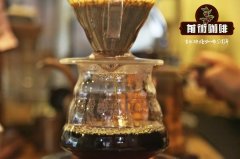What is the most primitive mode of production of coffee? a brief introduction to the ancient sun drying of Yemeni coffee

Professional coffee knowledge exchange more coffee bean information please follow the coffee workshop (Wechat official account cafe_style)
Yemen is a classic of the ancient early taste of the sun, and it is also the only full-day coffee producer in the world. Europe's fascination with game mocha has not changed since the 17th century. This is related to the extremely dry climate in Yemen, where coffee is mainly grown in the central highlands, with an average annual rainfall of only 400 Mel 750 mm, well below the best rainfall of 1500 Mel 2000 mm in Arabica. Due to the lack of water environment, farmers have been unable to introduce more advanced washing methods, wild flavor is better than Hara coffee, so Yemen has become the best choice to experience the ancient early taste.
The sun treatment in Yemen is rougher than in Ethiopia, the coffee berries grow naturally on the trees, do not use any artificial fertilizers or pesticides, accept a small amount of rain and fog on the hillsides in the summer, blossom and bear fruit, and in the dry winter, ripe coffee berries are allowed to hang on the trees to dry naturally until the fruit dries and turns purple-black on the branches and falls to the ground to pick it up. This is a very unique and rare practice, because only the extremely dry Arab climate and intense sun can allow it, and in other coffee producing areas, the same practice can lead to the decay of coffee berries on the trees. Different from the exquisite sun in which Yega Xuefei or Sidamo picks red fruit and lays it on an "elevated net bed", it is the main reason for the heavy game in Yemen.
Real Yemeni coffee is not common either. Farmers dry the harvested fruit on the roof of a stone house built by the mountain. during the sun and drying rice, they usually turn with a wooden rake to keep each bean evenly dried. After about 20 days of coffee drying, the outer pulp and peel are removed to remove coffee beans, and the process of peeling and shelling all depends on crude stone grinding equipment. Yemeni coffee is rich in flavor, complex, wild, mellow, strong fermentation and low acidity, coupled with the fact that Yemeni coffee often contains an uncertain factor (the time of rain in the season). It is not too much to call her the most special coffee in the world.
If measured by modern cup standards, Yemeni coffee is difficult to reach the grade of boutique. But high-quality Yemeni coffee has a unique flavor: complex Middle Eastern spices, ripe fruit, wine, cocoa, mellow taste and sweet taste. Like durian and stinky tofu, people who like and hate go to extremes.
Related recommendation: description of Yemeni coffee flavor and taste characteristics is Yemeni mocha coffee good?
Important Notice :
前街咖啡 FrontStreet Coffee has moved to new addredd:
FrontStreet Coffee Address: 315,Donghua East Road,GuangZhou
Tel:020 38364473
- Prev

Processing methods of Yemeni coffee beans characteristic treatment and flavor of Yemeni coffee beans
Professional coffee knowledge exchange more coffee bean information please follow the coffee workshop (Wechat official account cafe_style) Yemen is a classic of the ancient early taste of the sun, is also the world's only full-time coffee producer. Europe's fascination with game mocha has not changed since the 17th century. This is related to the extremely dry climate in Yemen, where coffee is mainly grown in the central highlands, with an average annual rainfall of only 400750 millimeters.
- Next

What is the ancient solarization of Yemeni coffee the difference between the ancient solarization and the ordinary solarization
Professional coffee knowledge exchange more coffee bean information please follow the coffee workshop (Wechat official account cafe_style) Yemen is a classic of the ancient early taste of the sun, is also the world's only full-time coffee producer. Europe's fascination with game mocha has not changed since the 17th century. This is related to the extremely dry climate in Yemen, where coffee is mainly grown in the central highlands, with an average annual rainfall of only 400750 millimeters.
Related
- Beginners will see the "Coffee pull flower" guide!
- What is the difference between ice blog purified milk and ordinary milk coffee?
- Why is the Philippines the largest producer of crops in Liberia?
- For coffee extraction, should the fine powder be retained?
- How does extracted espresso fill pressed powder? How much strength does it take to press the powder?
- How to make jasmine cold extract coffee? Is the jasmine + latte good?
- Will this little toy really make the coffee taste better? How does Lily Drip affect coffee extraction?
- Will the action of slapping the filter cup also affect coffee extraction?
- What's the difference between powder-to-water ratio and powder-to-liquid ratio?
- What is the Ethiopian local species? What does it have to do with Heirloom native species?

